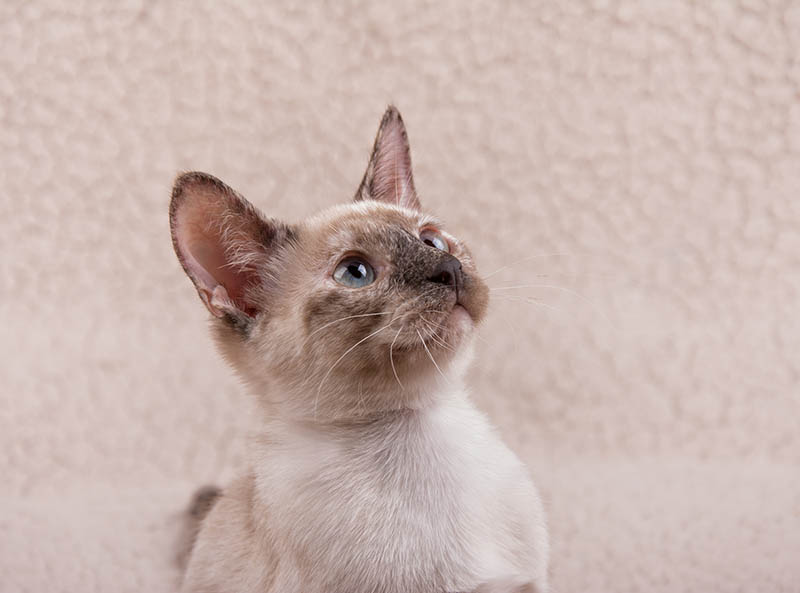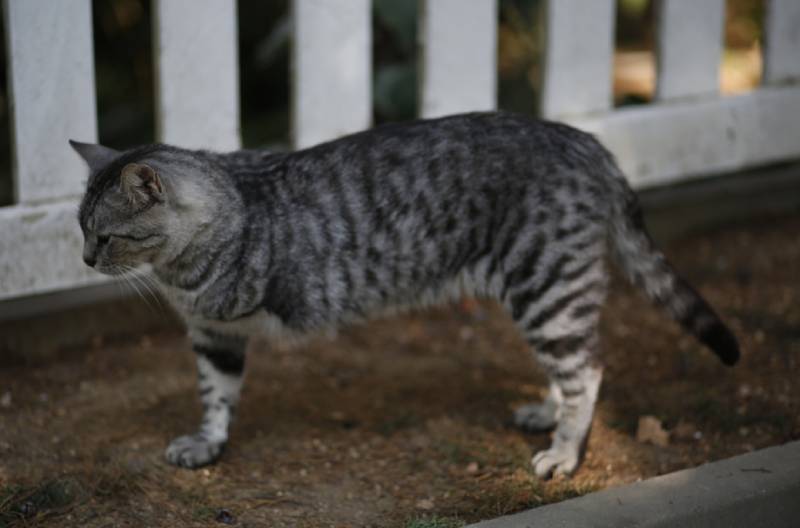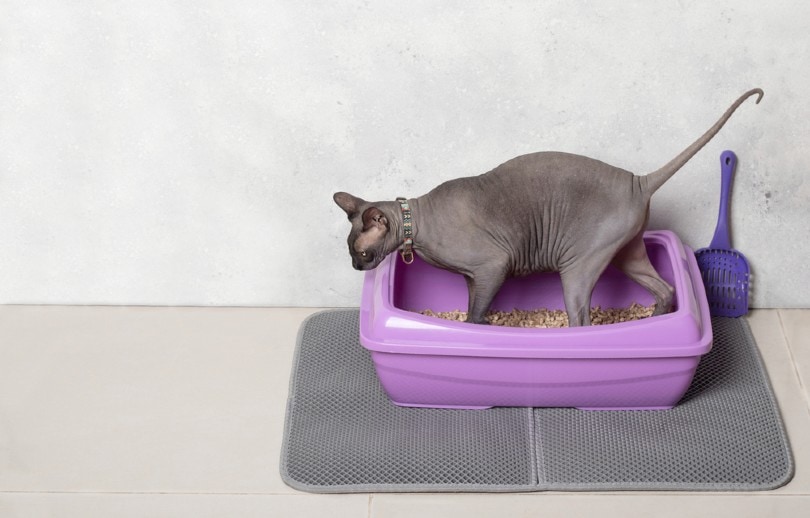How to Stop a Cat From Meowing: 7 Vet-Approved Tips
Updated on
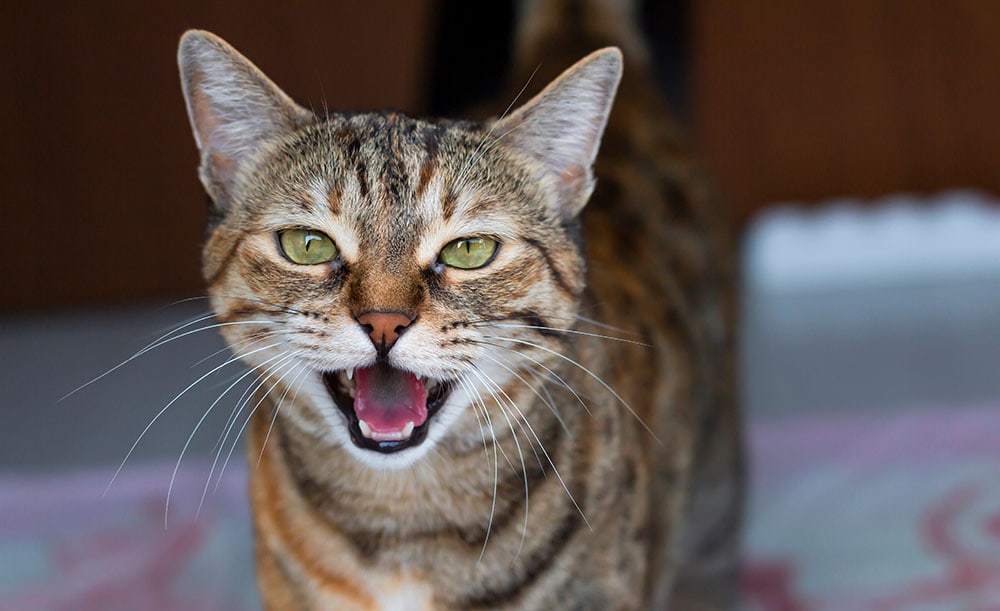
Practically every cat meows. But some do it more than others. Many cats may only meow occasionally, like when they are hungry. Other cats may meow nearly constantly for no apparent reason. Excessive meowing and yowling can be caused by many different things, so it can sometimes be hard to figure out why your cat is being so noisy.
Typically, excessive meowing isn’t a huge problem, but in some circumstances, it can be. If your cat is meowing in the middle of the night, it may interrupt your sleep. Other times, your cat’s meowing may prevent you from completing tasks that require concentration or talking to others in your household.
Here, we’ll help you figure out why your cat is meowing so much and offer tips for stopping the behavior.
What Causes Excessive Meowing?
Several things can cause excessive meowing. Some reasons may be serious, while others are simply annoying. Figuring out the why is essential for eliminating the problem.
Illness
Most cats are good at hiding their pain and distress when they are sick. This is an evolutionary trait that helped them survive in the wild, though it is less helpful in captivity. For this reason, most diseases don’t cause excessive meowing. However, there are a few that can. Kitty dementia can cause confusion, which can lead to excessive meowing and yowling for seemingly no reason. Thyroid and kidney disease may also cause excessive vocalizations.
If your cat randomly starts meowing way more than usual, it may be a sign that something is causing problems. A trip to the vet is necessary to ensure that your cat is in good health.
Attention Seeking
Often, cats may meow when they want attention. Many breeds don’t like being left alone for long periods. If you’re gone at work all day, your cat may be incessantly seeking for attention when you get home. Some cats may need more attention than others and may meow more for this reason.
You should spend quality time with your pet every day. However, you should not reward your cat for meowing. Preventative care is important for ensuring that your feline feels cared for and doesn’t need to meow for attention all the time.
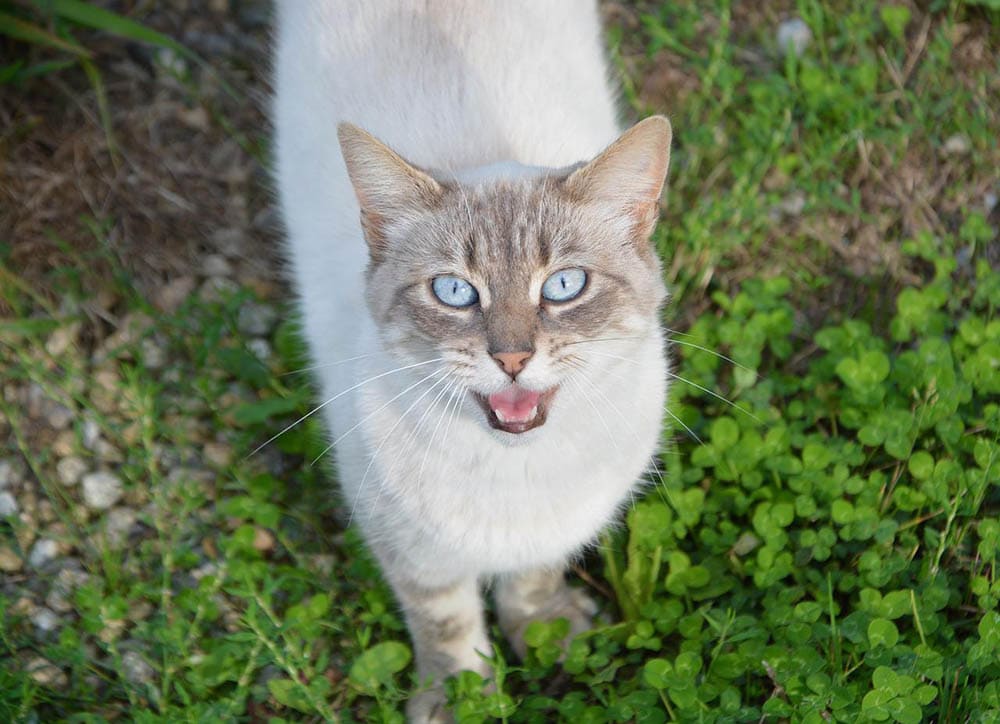
Unmet Needs
Many cats will meow insistently when they need something. For instance, your feline may have an empty food bowl and may meow at you to fill it up. Food is the most common need that cats meow about. However, some cats may meow for water, play, or even a cleaner litter box.
Stress
Stress can cause cats to do confusing behaviors. Excessive meowing can be one of these. All sorts of things can cause stress for felines. Big events can obviously cause stress, such as moving to a new home or changing their routine. However, other things can also cause stress, though they may not seem as serious to us. Cats can become upset at a new animal moving in next door, for example.
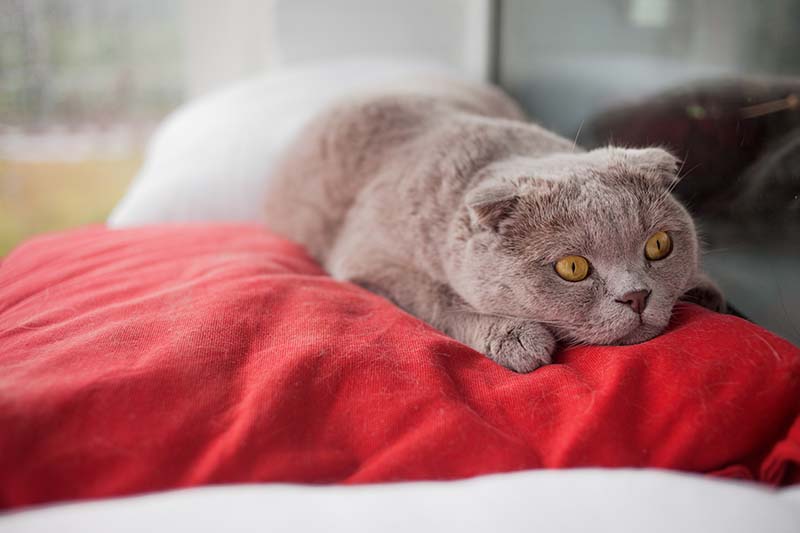
Hormones
Cats that aren’t spayed or neutered will meow and vocalize excessively every so often in an attempt to attract a mate. Females will meow and make some other very characteristic and loud vocalizations every time they are in heat. However, males will also meow, yowl, and vocalize if they hear or smell a female in heat. There is little that you can do to prevent this, besides spaying or neutering your cat.
Breed
Some breeds are noisy. That’s just how they are made. The Siamese is one of the best-known noisy cats, and they are extremely talkative. If you’re looking to avoid noise, you shouldn’t select one of these louder breeds. There isn’t much you can do to prevent them from meowing and vocalizing, it’s just what they do.
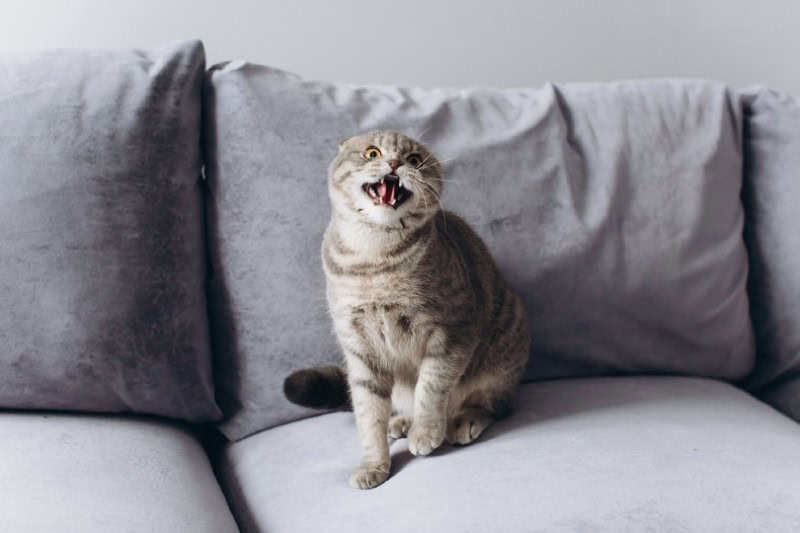
How to Stop a Cat From Meowing
1. Don’t Ignore the Meowing
You shouldn’t reward your cat meowing for attention. However, you shouldn’t just automatically ignore it either. Meowing may mean something more serious is going on, and this may be your early chance to catch it. You should work to establish the reason behind your cat’s meowing. If you can’t figure it out or if you notice any other strange behaviors, you should visit your vet. This is especially true if the meowing is sudden and out of character.
2. Provide Attention When the Cat Is Quiet
If your cat’s health has been checked and they are fine, they are likely meowing for attention. You shouldn’t pet your cat or provide attention when they are being noisy. This will teach them that meowing is the best way to get your attention. Instead, you should wait until your cat is quiet for a moment and then offer attention. Even if it is just to take a breath in between their meows, 5 seconds of silence is enough.
This will eventually teach your feline that being quiet is how they get attention, not meowing. This can be an easy solution, since it doesn’t take any extra time. However, it also takes a while to work in most cases. While it is a simple concept for many cats to grasp, building up enough discipline to not meow can be difficult.
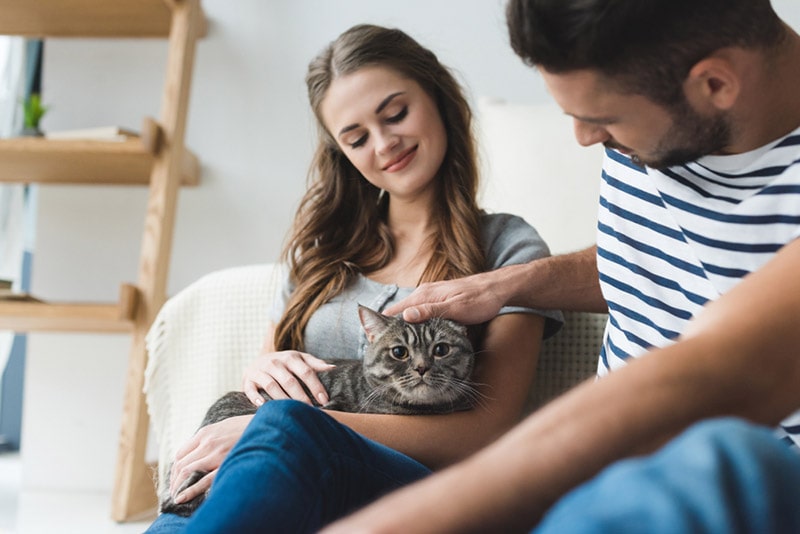
3. Provide More Stimulation
Some cats will meow because they are bored or lonely. Providing extra stimulation can help with both these problems. While extra stimulation won’t always keep your cat from being lonely, it can keep them entertained while you’re gone. You will still need to pay attention to your cat regularly, as toys won’t replace socialization.
Puzzle toys are great options, as they can keep your cat entertained for a long time. You can purchase commercial toys or make your own. Usually, food is used inside the toys to keep them interested.
Climbing structures can also be useful, as there are many ways that cats can play on them. Many will enjoy running around on the climbing structure, while others will climb to the top for a nap. These are multi-functional toys that are perfect for keeping cats interested and entertained.
4. Consider Using a Pet Sitter
If your cat is lonely during the day, consider having a pet sitter keep your cat company during the day. Some cats simply need more attention than others. This often is tied to their breed, so you should completely research cat breeds before deciding to adopt a cat. If you aren’t home much, you shouldn’t adopt a cat that needs a great deal of attention.
If you already own a cat, however, then your only option may be to hire a pet sitter who can come and be with your cat during the day. Make sure the pet sitter knows to only give attention to your cat when they are quiet.
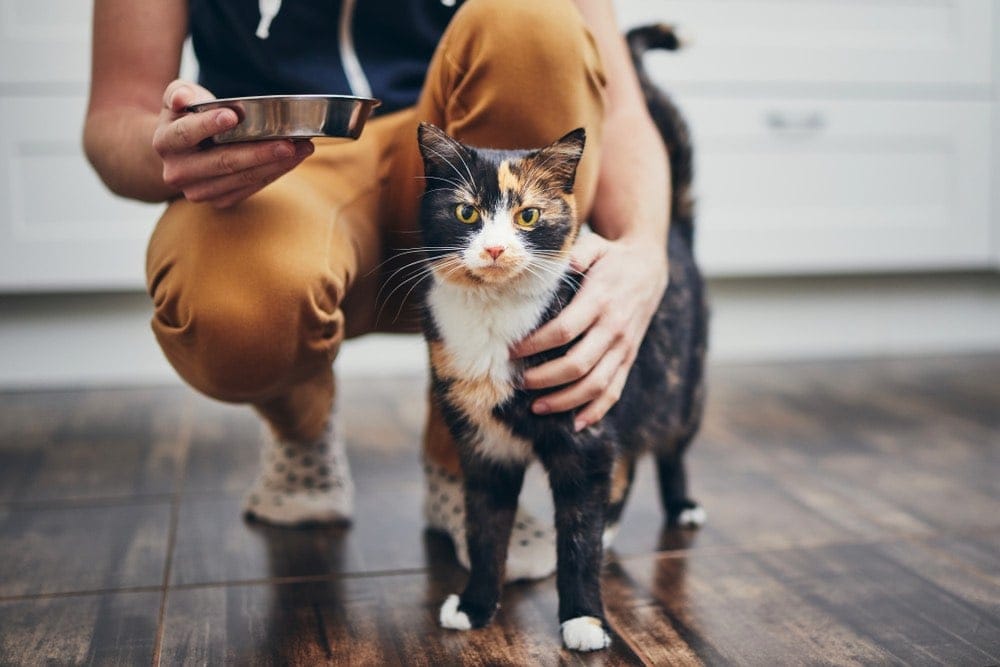
5. Consider High-Fiber Diets
Some felines may often meow because they are hungry, even if they’re technically getting plenty of food. A high-fiber diet may help them stay fuller for longer, which can help prevent meowing for food before their next mealtime. You can find details about these diets online, but feel free to ask your vet for recommendations if you’re feeling stuck.
There are also high-fiber supplements that can prevent hunger from creeping up on your cat. Usually, though, it’s easier for you to just choose a food that’s going to keep your cat full instead of adding an extra supplement to the schedule.
A high-fiber diet can be especially useful if your cat tends to wake you up in the morning to be fed. A fiber-rich meal at night can help keep your feline full until morning.
6. Get Your Cats Spayed or Neutered
Cats will meow excessively anytime they’re in heat. This is due to hormones and is completely unavoidable. All female cats will go into heat unless they are spayed, and most of these cats will meow and yowl excessively. Usually, this lasts a week or more. The only way to avoid this is to get your female cat spayed. Otherwise, you’ll simply need to deal with these hormonal periods.
Male cats do not go in heat. However, they will meow excessively if they smell a female that is in heat. Again, the only way to avoid this is to neuter your cat. Otherwise, they will excessively meow for days whenever a female in their area goes into heat.
7. Use Preventative Care
You should meet all your cat’s needs before they start meowing. Feed them at the same time each day and ensure that their water bowl is always full. You should pay them plenty of attention so they don’t need to meow at you insistently. If you do all this, your cat may stop excessively meowing entirely.
Conclusion
While most cats meow from time to time, there are certainly some that meow in excess. If you find yourself in this situation, we hope this article has helped give you some insight into why this might be happening, as well as encouraged you to take your cat in for a vet visit if it’s unlike them and started out of the blue. However, some cats are simply chatty, so this might just be something you have to learn to love about them.
Featured Image Credit: Kaan Yetkin Toprak, Shutterstock




